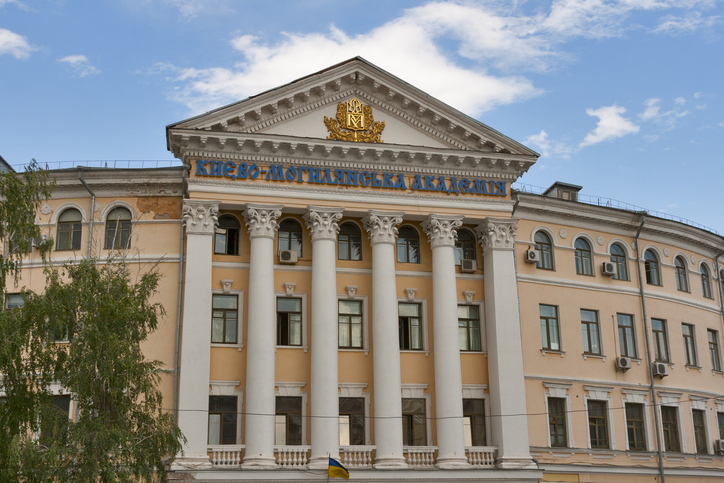
According to a survey, 33% of Kyiv’s residents have switched from speaking Russian to Ukrainian since Putin’s invasion a year ago. About 46% said they had been speaking Ukrainian for a long time, while 13% remain predominately Russian speakers. Until last year, Kyiv was a bilingual city, where Russian was heard slightly more than Ukrainian.
In January, Ukraine’s leading liberal university, the Kyiv-Mohyla Academy, banned the Russian language from its campus. The president of the Ukrainian National Academy of Sciences, Serhiy Kvit, told BVS Ukraine, “There will be no punishments for using the Russian language in the academy, despite the ban prescribed in the updated rules of the internal procedure. This is not a question of punishment, but of cultural change. The point is not to punish, but to change our internal corporate culture. No one will eavesdrop on the students, but the internal public opinion will be such that it will contribute to Mohylyanka being a fully Ukrainian-speaking university.”
“We will pay attention to the language issue—we will do social advertising. The academic conference voted unanimously because it considered it a problem. We believe that the Ukrainian language should be heard in our university,” added Kvit.
Prohibition of the Russian language does not extend to the educational process and scientific research, so unique Russian-language scientific sources can be used, as can sources related to the study of modern processes in Russia and its politics.
Rector Kvit, a former education minister, said the decision was taken after internal academic discussion. Eight students and staff members have so far died on the frontline, he said. Their framed photos hang in the corridor next to his office.
The university was founded in 1615, shuttered by the Soviets in the 1920s, and reopened in 1991 after Ukraine’s independence. “The decision isn’t about penalties. It’s about culture within our learning community. Language is a frame for culture,” Kvit said. English will now be added as a working language.
In Russian-occupied areas, Ukrainian has been banned from schools and universities, and Ukrainian teachers have been forced to follow Russian curricula. Ukrainian-language books have been removed from libraries and sometimes burned. Children are now being taught a Kremlin-approved version of history. It asserts Ukraine was never a state or a sovereign nation. According to Ukraine’s culture minister, Oleksandr Tkachenko, Russia’s removal of Ukrainian books is part of a wider assault on national heritage. He said 1,500 cultural objects had been destroyed over the past year, with museums deliberately shelled and vandalized and objects looted.







